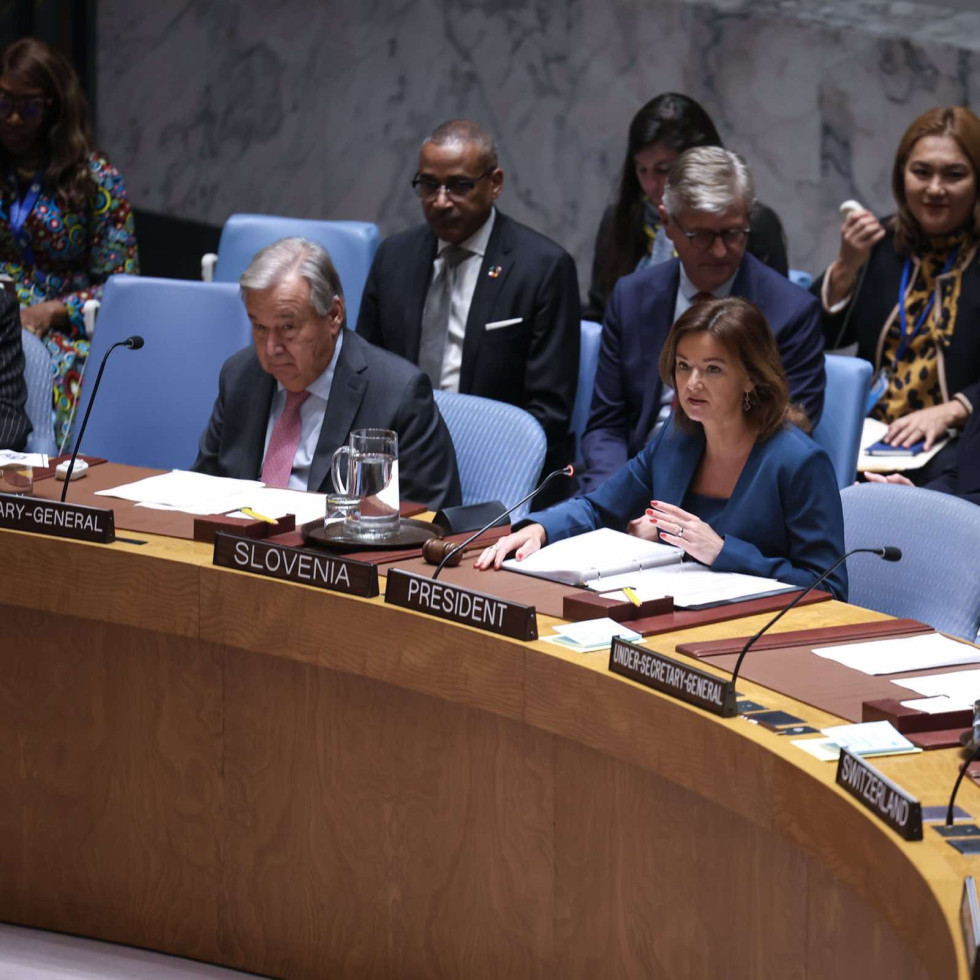Minister Fajon: UN Member States hold responsibility to strengthen the organisation
“As a non-permanent member of the UN Security Council, Slovenia is steadfast in its commitment to the consistent observance of the principles of the UN Charter and international law. We are also actively involved in discussions and reflections on UN reform. With regard to current crisis hotspots, we are raising critical questions on peace, security, respect for human rights and international humanitarian law. We call for the fulfilment of international commitments, for concrete actions and for the provision of tangible aid to those in need,” added the Slovenian Foreign Minister.
It has been 79 years since the UN Charter came into force, and Slovenia became a member of this international organisation on 22 May 1992. Since then, our country has been an active, responsible and engaged member of the UN. We contribute to shaping policies and measures to address global challenges and strive for an effective, rules-based multilateralism with the UN at its core, as this is essential to ensuring global peace and security. At the same time, we recognise the need for UN reform and are actively participating in efforts to achieve this.
During its second term on the Security Council (2024–2025), Slovenia seeks to make a positive contribution towards ensuring peace and security, prosperity and a dignified life for present and future generations. Slovenia is recognised as an active member that addresses crises worldwide with consistent standards and an awareness of the importance of protecting civilians.
In addition to increasing funding for humanitarian aid to address the growing complexity of humanitarian crises, Slovenia emphasises the importance of adopting a comprehensive approach to tackle their root causes and build resilient societies. It also highlights the need for respect for international humanitarian law, ensuring unhindered humanitarian access, protecting civilians and safeguarding the security of humanitarian workers in crises worldwide. Slovenia also participates in UN peacekeeping operations, with a focus on preventive diplomacy and mediation, and has actively supported the development of the Responsibility to Protect (R2P) concept since its inception in 2005.
Human rights are a cornerstone of Slovenia’s foreign policy, which is why the country is once again standing for membership of the UN Human Rights Council for the 2026–2028 term. Slovenia champions the universality and indivisibility of human rights and is committed to strengthening international human rights law. Its priorities include gender equality, the empowerment and status of women, the rights of women and girls, children's rights and the rights of older persons, human rights in the context of environmental and climate change, and human rights education. Additionally, close attention is paid to preventing all forms of sexual violence, including sexual violence in armed conflicts.
As a member of the UN Economic and Social Council (ECOSOC) for the 2023–2025 term, Slovenia contributes to finding effective solutions to global challenges and strives for a sustainable, just, inclusive and secure future for all. The country focuses on achieving the goals of the 2030 Agenda for Sustainable Development and fulfilling the commitments of the Paris Agreement on climate change. With its rich history and diverse natural environment, Slovenia is also committed to promoting intercultural dialogue, fostering tolerance and preserving both natural and cultural heritage.
Several Slovenian representatives play a key role in shaping Slovenia's reputation and influence within the UN by actively participating in various processes or bodies. In August 2024, UN Secretary-General António Guterres appointed former Slovenian President Dr Danilo Türk to a five-member group of eminent persons tasked with reviewing the peacebuilding architecture. Already in 2022, he had also appointed Dr Türk, along with eleven other distinguished leaders and experts, to the High-Level Advisory Board on Effective Multilateralism.


